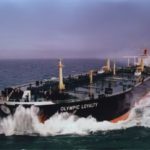Dow expects gradual economic recovery in H2 2020: CEO

Dow Chemical expects economic recovery to take hold in the second half of 2020 as gradual emergence from coronavirus pandemic-related shutdowns continues, CEO Jim Fitterling said.
“We see signs of strength every week, gradual,” he said during the virtual Bernstein 36th Annual Strategic Decisions conference.
“We’ve seen China on the industrial side come back to almost 80%, maybe in some cases 90% of where it was pre-COVID. We’ve started to see some of that play out through the rest of the world,” he said. “I would say it’s very uneven, and Europe is lagging with the United States right now.”
While the global petrochemical giant sees automotive and construction industries emerging from shutdowns, divergent demand patterns remain for disposable plastics versus more durable goods. Demand is strong for so-called consumer plastics known for one-time use, such as food packaging and coatings used for do-it-yourself painting.
However, durable goods like plastics in vehicles or construction remains slow, he said.
“As that trend of a gradual and sustainable reopening continues through the second half of the year, we expect a recovery will begin to take hold,” Fitterling said.
DOMESTIC PE PRICE INCREASES LOOMING
Dow is among US polyethylene producers who announced 4 cents/lb price increases effective in June, after prices fell 4 cents/lb in April. Fitterling said the industry saw “a little bit of a misread on inventories” and reduced rates to match lower domestic demand while exports increased, particularly to China, as the world’s second-largest economy emerged from widespread lockdowns.
He also said the domestic PE market saw “a little bit of an overcorrection” when May WTI oil contracts expired in negative territory for the first time ever, prompting demand worries that pushed PE prices down.
Dow idled two PE trains in Texas, a PE unit in Argentina and two elastomers units in Louisiana to balance supply with lower demand.
He noted demand for PE, particularly low density and linear low density grades, has held up as they are used to make disposable plastics.
High density PE makes single-use plastics as well, such as molded detergent or shampoo bottles, but also makes more durable goods, like natural gas transmission pipelines. Demand for durable plastics fell amid shutdowns and economic shocks, from some HDPE uses to polypropylene used in vehicles and PVC for construction materials.
Dow’s assets that make plastics used in nonwoven fabrics for medical masks and gowns, hot-melt adhesives, films for food packaging and other online e-commerce packaging are running. Assets producing more durable or rigid plastics for which demand fell were slowed until the company sees that demand return.
“And as demand starts to come back, we can bring those back,” he said of the idled plants. “To idle a polyethylene plant is a little more straightforward than, say, idling a cracker or shutting down a cracker. With a cracker, you can dial rates down a little bit to balance. With the polyethylene plant, we took the decision to idle it so that we can run the other plants harder.”
While Dow shut down five PE and elastomer units, the company in April brought a 500,000 mt/year expansion online at its newest cracker in Freeport, Texas, pushing its nameplate capacity to 2 million mt/year, the largest cracker in the world.
Fitterling also noted that ethylene oxides have held up “pretty well” despite price pressure as oil prices plummeted.
He said monoethylene glycol prices had bottomed out, and Dow is starting to see demand for downstream polyester and polyethylene terephthalate production return. MEG is a feedstock for polyester as well as PET bottles for water and beverages.
US export MEG prices were last assessed May 22 at 14 cents/lb FOB USG, their lowest level since March 2002, S&P Global Platts data showed. MEG prices had been under pressure throughout 2019 on oversupply as new US MEG units came online, but the oil price crash due to the pandemic and a Russia-Saudi Arabia price war exacerbated that weakness.
Source: Platts

 Hellenic Shipping News Worldwide Hellenic Shipping News Worldwide, Online Daily Newspaper on Hellenic and International Shipping
Hellenic Shipping News Worldwide Hellenic Shipping News Worldwide, Online Daily Newspaper on Hellenic and International Shipping






















 PG-Software
PG-Software